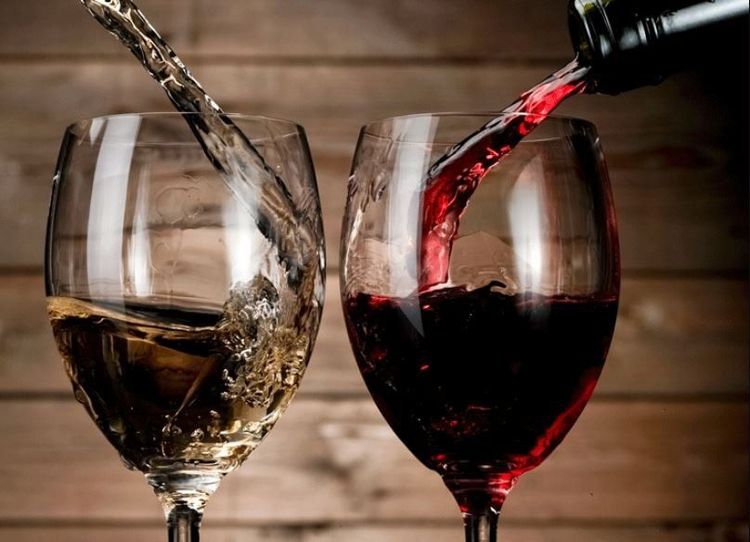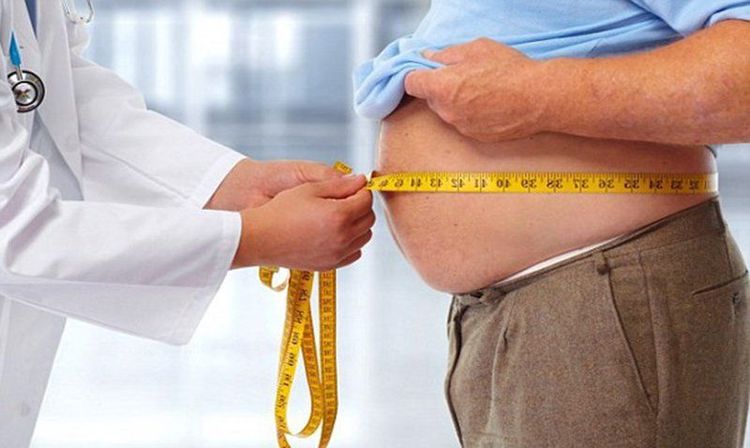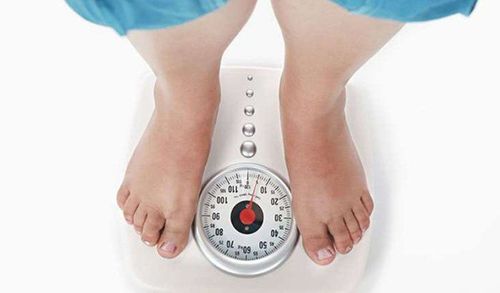This is an automatically translated article.
Wine is one of the most popular alcoholic beverages in the world and is a staple drink in a number of cultures. You may enjoy a glass of wine when you meet friends or relax after a long day, but you may be wondering if drinking too much alcohol can make you gain weight.1. Calorie Content Wine is an alcoholic beverage made from fermented grape juice. Most of the calories in wine come from alcohol and varying amounts of carbs.
Although drinking wine is considered particularly high in calories, it is easy to overconsume it. As a result, the calories from wine can increase.
Of course, the calories in wine vary and the exact number depends on the type. Dry wines tend to have less sugar and therefore fewer calories than sweet wines, while sparkling wines have the lowest calories.
While the calories in a glass of wine seem like a lot, a few glasses contain more than 300 calories and a bottle has up to 600 calories. Depending on how much you drink, wine can contribute a significant amount of extra calories to your daily intake.
Compare that a 355ml beer has about 100 calories, while the same amount of regular beer has almost 150 calories and even more if it is a heavy beer.
When compared side by side, wine is slightly higher in calories than light beer and most wines, but less than regular and heavy beers. Mixers like juice and soda can dramatically increase the calorie and carb content of distilled spirits, such as vodka, gin, and whiskey.
2. Does drinking wine make you fat? Drinking too much alcohol can cause you to consume more calories than you burn, which can lead to weight gain. Furthermore, calories from alcohol are often considered empty calories, since most alcoholic beverages do not provide appreciable amounts of vitamins, minerals, or other nutrients.
However, you may have heard that red wine, in particular, can offer more benefits than other wines. Red wine contains resveratrol, an antioxidant compound that may fight disease and has been linked to heart benefits when consumed in moderation.

Uống quá nhiều rượu vang có thể gây tình trạng tăng cân ở người uống
Drinking too much alcohol seems to outweigh any possible benefits and contributes excess calories in the process. Additionally, heavy drinking can lead to weight gain in other ways than just contributing empty calories. When you consume alcohol, your body uses it before carbs or fats for energy. Therefore, these nutrients can be stored as fat.
High alcohol consumption is also associated with poor diet quality. However, it's not clear if this is the result of unhealthy food choices made while intoxicated, or if people who drink more often have less healthy diets in general.
3. Some Cons Consuming too much alcohol or alcohol can have downsides beyond those related to possible weight gain. In general, moderate drinking is not associated with health risks.
The National Institute on Alcohol Abuse and Alcoholism defines moderate drinking as up to one drink for women and up to two drinks for men per day. One drink is defined as 14 grams of alcohol, which is equivalent to 355 mL of beer, 148 mL of wine, or 44 mL of spirits.
Since the liver plays a large role in the processing of alcohol, drinking a lot of alcohol can lead to the accumulation of fat inside your liver and can eventually cause chronic liver failure and damage known as cirrhosis. It has also been linked to an increased risk of dementia, depression, heart disease, and certain types of cancer.
4. How alcohol affects your weight loss Drinking alcohol is a favorite pastime for people, both socially and culturally. Some studies suggest that alcohol may have health benefits. For example, red wine may reduce the risk of heart disease.
However, alcohol also plays a big role in weight management. Anyone looking to lose weight eventually might want to consider skipping their evening glass of wine. Here are 8 ways to drink wine for your weight loss:
4.1. Alcohol is usually empty type Alcoholic beverages are often referred to as empty calories. This means they provide your body with calories but contain very few nutrients. There are almost 155 calories in a can of beer and 125 calories in a glass of red wine. For comparison, a recommended afternoon snack should have between 150 and 200 calories. A night out with lots of drinks can lead to consuming several hundred extra calories.

Rượu thường là loại trống rỗng chứa ít chất dinh dưỡng cho cơ thể con người
However, alcohol also plays a big role in weight management. Anyone looking to lose weight eventually might want to consider skipping their evening glass of wine. Here are 8 ways to drink wine for your weight loss:
4.1. Alcohol is usually empty type Alcoholic beverages are often referred to as empty calories. This means they provide your body with calories but contain very few nutrients.
There are almost 155 calories in a can of beer and 125 calories in a glass of red wine. For comparison, a recommended afternoon snack should have between 150 and 200 calories. A night out with lots of drinks can lead to consuming several hundred extra calories.
Drinks with mixers, such as fruit juices or sodas, contain even more calories.
4.2. Alcohol is used as the main fuel source There are other factors that can cause weight gain besides the calorie content. When alcohol is consumed, it burns first as a source of fuel before your body uses anything else. This includes glucose from carbohydrates or lipids from fats.
When your body is using alcohol as its main source of energy, excess glucose and lipids are unfortunate for us, like adipose tissue, or fat.
4.3. Alcohol can affect your organs The main role of your liver is to act as a filter for any foreign substances that enter your body, like drugs and alcohol. The liver also plays a role in the metabolism of fats, carbohydrates, and proteins.
Excessive alcohol consumption can lead to what is known as alcoholic fatty liver. This condition can damage your liver, affecting how your body metabolizes and stores carbohydrates and fats. Changes in the way your body stores energy from food can make it very difficult to lose weight.
4.4. Alcohol can contribute to excess belly fat Foods high in simple sugars, such as those found in candy, soda and even beer, are also high in calories. The extra calories are ultimately stored as body fat. Consuming foods and drinks that are high in sugar can quickly lead to weight gain. We can choose where all the extra weight ends. But the body tends to accumulate fat in the abdominal area.

Sử dụng nhiều rượu vang khiến cơ thể bị tích tụ mỡ vùng bụng
4.5. Alcohol affects judgment, especially with food Even the toughest diet fan will have a hard time resisting the urge to dig deep when drunk.
Alcohol lowers inhibitions and can lead to poor decision making in hot times especially when it comes to food choices. However, the effects of alcohol go beyond social drinking etiquette.
A recent animal studyTrusted Source found that rats given ethanol for a period of three days demonstrated a significant increase in food intake. This study shows that alcohol can actually trigger hunger signals in the brain, leading to the urge to eat more food.
4.6. Alcohol and sex hormones It has long been known that drinking can affect hormone levels in the body, especially testosterone. Testosterone is a sex hormone that plays a role in many metabolic processes, including muscle formation and fat burning.
One study found that low testosterone levels can predict the incidence of metabolic syndrome in men. Metabolic syndrome is characterized by: high cholesterol, high blood pressure, high blood sugar, high body mass index. Plus, lower testosterone levels can affect sleep quality, especially in older men.
4.7. Alcohol can negatively affect your sleep A nightcap before bed may sound like a ticket to a good night's sleep, but you might want to reconsider. Research shows that alcohol can have a negative effect on your sleep. can lead to increased awakening time in the sleep cycle. Lack of sleep, whether sleep deprivation or poor sleep, can lead to an imbalance of hormones related to hunger, satiety, and energy storage.

Sử dụng rượu vang đúng cách sẽ là một thức uống an toàn với cơ thể
4.8. Alcohol affects the digestion and absorption of nutrients Your social anxiety is the only thing that alcohol inhibits. Drinking alcoholic beverages can also inhibit proper digestive function.
Alcohol can put a strain on the stomach and intestines. This leads to a decrease in digestive secretions and movement of food through the ducts.
Digestive secretions are an essential element of healthy digestion. They break down food into basic macro and micronutrients that are absorbed and used by the body.
Drinking alcohol at all levels can lead to impaired digestion and absorption of these nutrients. This can greatly affect the metabolism of the organs that play a role in weight management.
Please dial HOTLINE for more information or register for an appointment HERE. Download MyVinmec app to make appointments faster and to manage your bookings easily.
Articles refer to sources: healthline.com, webmd.com












